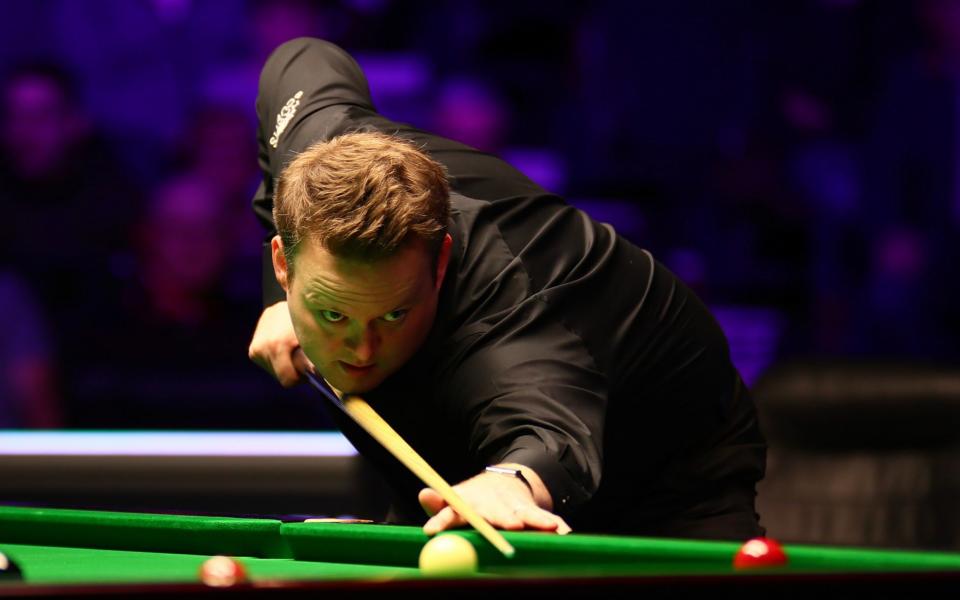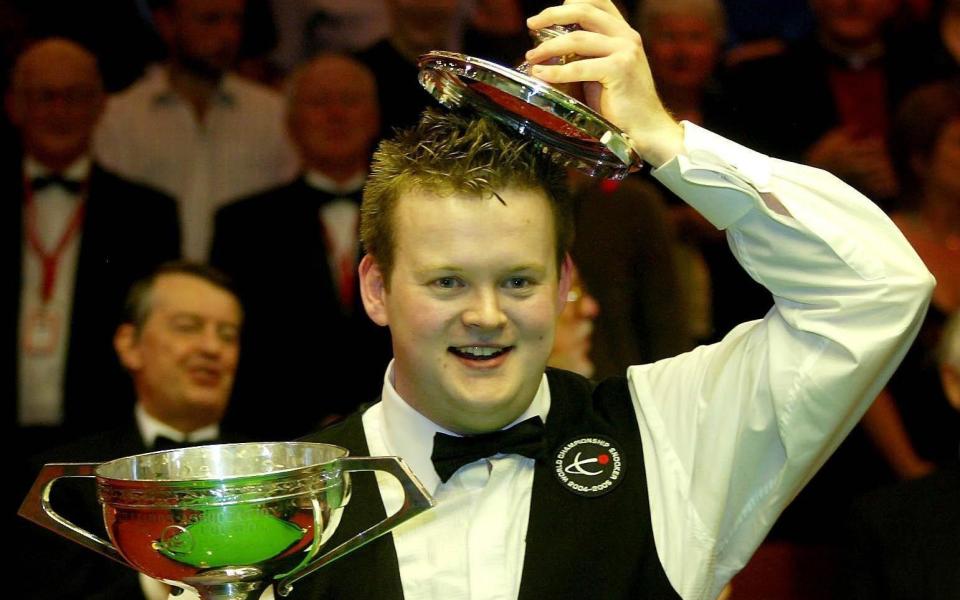Shaun Murphy interview: 'My wife says I'm a show off... so playing without a crowd can be unsettling'

For the 128 competitors who gathered for the World Snooker Championship at the Crucible Theatre in Sheffield, things have been rather different from what they have experienced before.
For a start the tournament is taking place in August, delayed by the pandemic from its conventional April slot. And, when they arrive at the venue, the players have been faced with the sort of covid-preventing measures, from undergoing frequent tests to not shaking hands before a match, that ensure this is like no other tournament.
“The list of dos and don’ts we’ve been sent is extreme,” says Shaun Murphy, the 2005 champion who begins his tournament against Noppon Saengkham of Thailand on Monday.
“And rightly so. The governing body have done a brilliant job to prepare us for this. They are flag bearers for the return of normal sport. So it’s important we’re seen to be doing the right things. Yes, a few of the strictures may be a little over the top, but ultimately we’re all very lucky to be going back to work. If there’s a few hoops we have to jump through, so be it.”
Murphy arrived in Sheffield after attending the funeral in Portugal of his manager and mentor Brandon Parker. He says he is hoping to dedicate success to Parker, who had been with him since he won the world title. But he knows the circumstances are not easy. Like all involved, Murphy has barely played a competitive match since February.
“Back then I’d been on the road for six, seven weeks consecutively,” he recalls. “I did an interview post-match at one tournament and once the cameras were off I said: ‘Jeez I’d like a week or two off this just to stay at home and work on my game’. All I can say is: be careful what you wish for.”
At least in lockdown he did work on his game. Consigned to his home in Ireland for eleven weeks, he spent much of the time watching videos on YouTube of former players in action, trying to improve through study. When he was finally able to go back to the snooker club in Dublin where he practises, he reckons it was as big a release as he has ever felt.

“I never want to go through that again,” he says of lockdown. “Let’s just say I don’t think my wife thought I was great company.”
After the longest gap in competitive action in his professional career, he played in the Tour Championships in Milton Keynes at the end of June. Staged behind closed doors, it was, he says, a very odd experience. Not least because he lost in the first round to his practice partner Mark Allen, despite making a record six centuries.
“I made six centuries and there wasn’t one clap, not one tap of the knee. The silence was deafening. My wife says I’m the biggest show off she’s ever met and I use snooker as my vehicle. I think the top competitors in any sport are performers. To go out to nobody and just play down the lens was unsettling.”
Not only that, he suggests the lack of a response changed the rhythm of the match.
“Normally when somebody makes six centuries in front of a crowd it gets such a reaction it lifts the player so much it builds momentum. And it can swamp his opponent. That didn’t happen, Mark [Allen] hit me back. The lack of a crowd really did play a part in the eventual result. Or that’s my excuse anyway.”
The plan was that the Crucible would host spectators throughout the competition, a plan that was shelved after the first day when Prime Minister Boris Johnson slammed the brakes on fans attending sporting events. The question is whether the arena holds the same level of intimidation, but Murphy is adamant it remains one of the most intimidating venues in the sport.
“Oh, The Crucible can eat you alive, no question,” he says. “I remember the first time I walked out as a debutant against Stephen Hendry, I was so nervous, whilst I was waiting for Hendry to be introduced, I unscrewed my bottle of water and tried to pour it without looking as I’d seen guys do on the TV many times. I missed the glass. I’d only been in the arena two minutes and I nearly drowned myself.”
But when he breaks in his first round match against Saengkham, he is hoping his aim has improved.
“I certainly hope I can deal with it all a lot better now,” he smiles.

